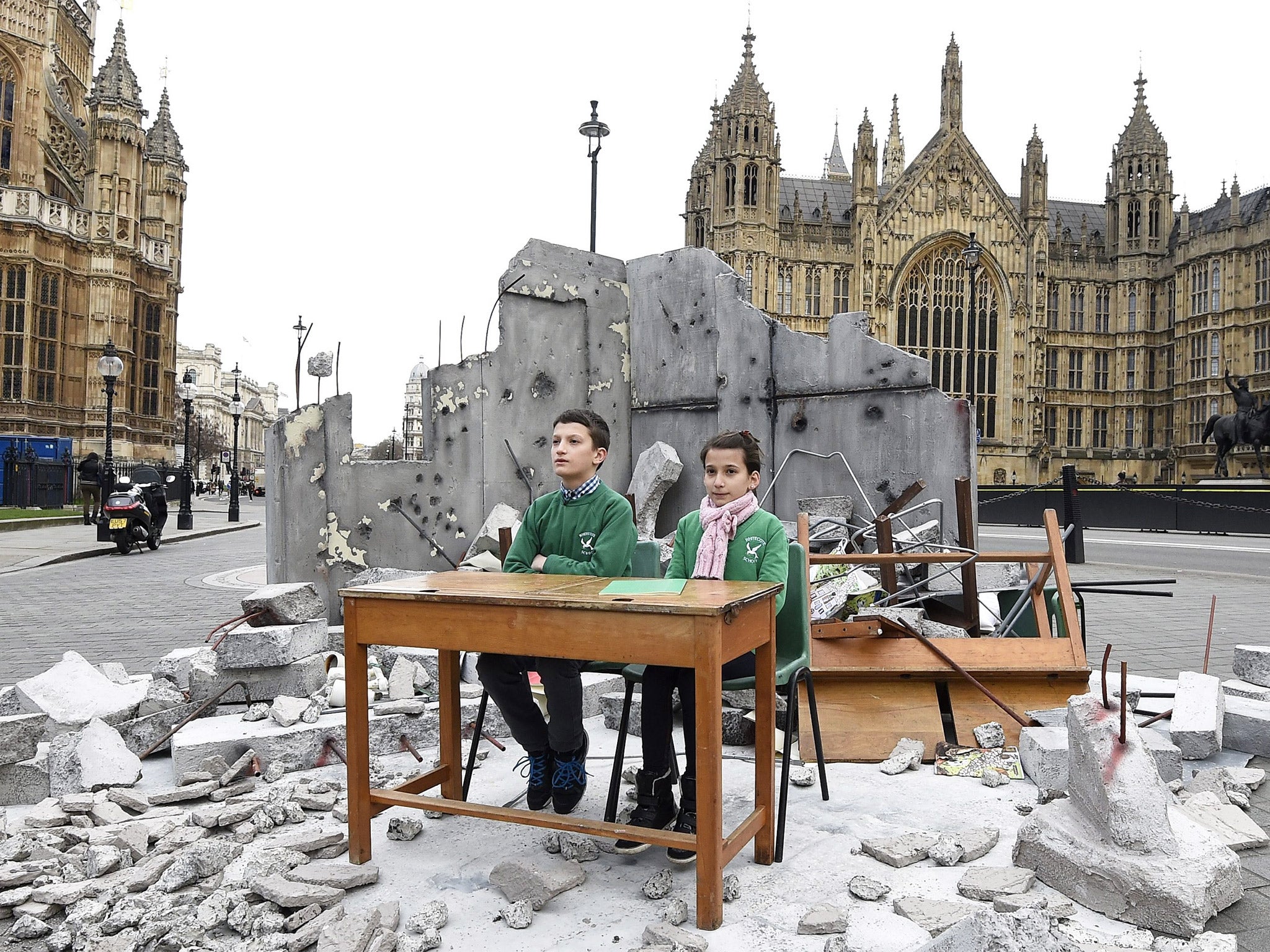Syria peace talks: What hope is there for progress when Assad uses negotiations as cover for a brutal offensive?
If the Geneva talks are to make any sense at all, they must make life bearable for those on the ground

Your support helps us to tell the story
From reproductive rights to climate change to Big Tech, The Independent is on the ground when the story is developing. Whether it's investigating the financials of Elon Musk's pro-Trump PAC or producing our latest documentary, 'The A Word', which shines a light on the American women fighting for reproductive rights, we know how important it is to parse out the facts from the messaging.
At such a critical moment in US history, we need reporters on the ground. Your donation allows us to keep sending journalists to speak to both sides of the story.
The Independent is trusted by Americans across the entire political spectrum. And unlike many other quality news outlets, we choose not to lock Americans out of our reporting and analysis with paywalls. We believe quality journalism should be available to everyone, paid for by those who can afford it.
Your support makes all the difference.The bitter truth about the Syrian peace talks in Geneva, suspended by the UN last night, is that – even if they eventually culminate in total agreement between all parties – the civil war will not be stopped. It might even intensify.
Two of the three main armies in the conflict, Isis and the Kurds, who between them control two-thirds of Syria’s territory, have not been involved in these talks, now due to resume on 25 February. Isis will never be invited and will continue to fight. The Kurds will continue to resist Isis. In the meantime, Isis will do all in its power to sabotage the talks. An example of that came on Sunday night, when an Isis suicide bomber killed 72 people at Sayeda Zeinab, a revered Shia shrine near Damascus. On Tuesday, the head of the Syrian government delegation to the Geneva talks, Bashar al-Jaafari, called on the opposition represented in the Swiss city to condemn the bombing. They have yet to do so.
The reason, of course, is that of the many conflicts nestled together in the Syrian conflagration, the most poisonous is that of the Shia, represented by the Assad government and its Iranian allies, and the Sunnis, whose most violent and fanatical wing is Isis, but who also account for the less extreme of Assad’s domestic enemies. So striking a deal between the parties whom UN mediator Staffan de Mistura is attempting to persuade to talk to each other in Geneva is a bit like some optimist trying to reunify East and West Germany in the depths of the Cold War. You might salute the attempt, but you would not put money on its success.
And the odds on any kind of a deal lengthened terribly yesterday as Assad and his Russian backers took advantage of Geneva, with the Syrian army launching a major offensive against rebels in the northern city of Aleppo, backed by Russian air strikes. The object appeared to be to encircle the city, cutting rebel supply lines to Turkey.
It is deplorable (yet normal) for contending armies to take advantage of pauses and ceasefires and attempted negotiations to strengthen their relative positions, but Assad’s forces are in a much better position to do so than the rebels. According to the UN, the Syrian government is besieging 187,000 people in rebel-held towns; the rebels by contrast are besieging only two towns, with 12,000 residents. That is the scale of the asymmetry between the sides.
The aim of the Geneva talks, as mandated by a UN resolution passed in December, is for negotiations between representatives of the Assad regime and the opposition groups to lead to a new government and elections. But these blood enemies, divided by religious affiliation, embittered by the slaughter of thousands of their kin and the destruction of their homeland, cannot be bullied into sitting down around a single table – this is UN moonshine of very dubious value. Nothing is risked by labelling it as such.
But from this toxic maelstrom, peace must somehow be conjured. The millions of refugees on the move and the families of the quarter-million killed demand it; this most destabilising of all recent conflicts must be brought to an end. The West must continue to back those it has fitfully supported in the Syrian opposition; and every diplomatic means must be found to oblige Russia and Iran to pressure the Assad regime to rein in its forces, town by town, siege by siege. If the Geneva talks are to make any sense at all, they must make life bearable for those on the ground – and quickly.
Join our commenting forum
Join thought-provoking conversations, follow other Independent readers and see their replies
Comments